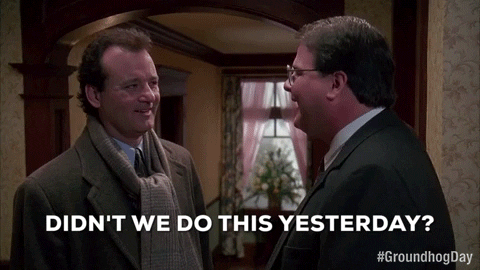As I look back on last week on this cold, Monday morning and see that I’ve barely written 250 words, I try not to feel like a failure. But it’s hard.
Granted, I’ve had to deal with some personal stuff that sucked all my energy and will to write. I still managed to work on some design ideas and take some business courses that will help me as I start to build my brand though. So why did the main thing I need for said brand—a finished product, in this case, a novel—fall through the cracks?
Most people are unaware, but writing a novel is an arduous process that requires a significant amount of time, dedication, and creativity. A writer puts their soul on the page. And the first draft sometimes becomes a herculean labor, especially if you can't seem to wrap up the story. It's a demoralizing experience I can assure you.
It takes great focus and unwavering motivation to write day after day, no matter what’s happening in the world around you. And even if everything goes your way and nothing derails your schedule, guess what? Self-doubt comes knocking.
Even though I’m not alone in this, and many writers struggle with feelings of inadequacy or imposter syndrome, being in good company doesn’t make these feelings go away any faster. And if we add perfectionism to the mix, the difficult to bear feeling that my work is not good enough and so I must constantly revise and edit my work before it is ready? Well, it’s no wonder that a small hiccup can keep me from opening the document of my current WIP.
But I know that the biggest mistake I can make is let these feelings take root and stay away from writing for too long. Therein lies the biggest monster a writer can struggle with: writer's block. You want with all your heart to write, but your brain refuses to obey.
Why you ask?
For me anyway, it’s not just fear of not writing well. At some point, I start to have second thoughts about my plot. Is it interesting enough? Could something like that really happen? What about the characters, are they compelling or just meh?
The sheer scope and complexity of writing a novel is not something I realized when I first decided to write. God, it's laughable (to the point of tears) how I thought I could just sit down and the words would come.
Too late I saw how the mere planning can be daunting, not to mention all the methods out there might drive you mad--the 3-act structure and the Freytag pyramid, save the cat and the hero’s journey, the wheel of emotions and the enneagram are just a few of the terms a budding writer will come across. And the temptation to try most of them because one of them has to be the glass slipper that fits your…or rather, the velvet glove that fits your hand.
Writers must juggle multiple plotlines, characters, and themes while maintaining a consistent voice and tone throughout the book. And if you are new to writing, the odds are you'll end up overwhelmed even if you're the most organized type A in all the land.
The longer it takes you to finish your work in progress, the more frustrated you get with the book, with yourself, with the world. And then guess what happens? That frustration is demotivating and discouraging, and can also lead to feelings of self-doubt and anxiety, in other words, heighten all the negative feelings that are preventing you from typing the end which is why you're frustrated in the first place!
It's a vicious, vicious cycle.
So how do we break it? How do we push through all the bullshit until we reach the last page? I wish I could say there's a magical one-size-fits-all solution, but every person is different. One of the most important strategies is to develop a consistent writing routine. That could mean setting aside a specific time each day or week to write, or it may involve breaking the writing process down into smaller, manageable tasks that can be completed over time (Pomodoro technique anyone?) Maybe you listen to music or put on noise-cancelling headphones. The point is that you find what works for you and you keep doing it day in, day out.
Another helpful strategy is to seek support from other writers and become part of a community. Writing can be a solitary and isolating activity, so it can be helpful to connect with others who are going through similar struggles and challenges. Joining a writing group, attending writing workshops, or seeking feedback from beta readers can all be helpful ways for a writer to stay motivated and keep their eye on the ball.
Finally, it is important to remember that writing is a process, and that the first draft is just the first step in the ladder of that process. It is okay to make mistakes, to write imperfectly, and to struggle with the end result. Embracing that
can be liberating and just the absolution we need. The novel we write may be less perfect than the one in our head, but that's okay because at the end of the day, we write because we're creative beings. Neither we nor our creative visions need to be perfect.






